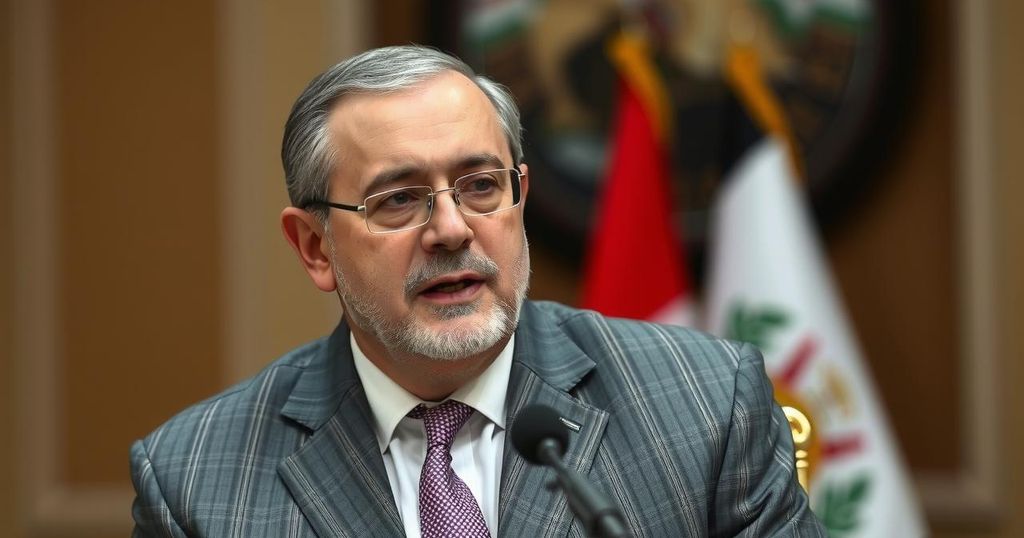Ahmed al-Sharaa, Syria’s de facto leader, indicated elections may take up to four years post-Assad’s ousting. He emphasized the need for a population census and a new constitution, which could take three years. Al-Sharaa reassured neighboring countries of Syria’s stability and expressed hopes for improved relations with the US under President-elect Trump, aiming for lifted sanctions.
In a recent statement, Ahmed al-Sharaa, the de facto leader of Syria, articulated that the timeline for holding elections in the war-torn nation may extend up to four years. This remark marks al-Sharaa’s first public disclosure regarding an electoral schedule since the removal of former President Bashar al-Assad, following the significant victory of the opposition forces led by Hayat Tahrir al-Sham (HTS). Al-Sharaa emphasized the necessity of conducting a comprehensive population census prior to any significant electoral activity, extolling that “any meaningful elections will require conducting a comprehensive population census,” which is projected to precede the elections.
Al-Sharaa also indicated that the process of drafting a new constitution could consume as much as three years. Despite the challenging landscape, he forecasted that noticeable changes might transpire within a year, particularly with the dissolution of HTS at an upcoming national dialogue conference aimed at establishing stability. Furthermore, he reassured neighboring countries, asserting that “Syria will not be a source of disturbance to anyone.”
In a broader context, al-Sharaa signaled a desire to maintain strategic relations with Russia, highlighting their mutual interests amidst ongoing discussions about the operational status of Russian military bases in Syria. In light of impending political transitions in the United States, he expressed hope that sanctions imposed on Syria would be reconsidered. This follows a pragmatic engagement with US diplomats, suggesting a potential shift in Syria’s foreign relations under al-Sharaa’s leadership.
The political landscape in Syria remains volatile following the ousting of Bashar al-Assad. Ahmed al-Sharaa’s emergence as the new leader reflects the complex dynamics present within the nation, as various factions vie for power in a post-Assad Syria. Al-Sharaa’s comments on the electoral timeline shed light on the challenges faced in establishing governance, particularly the importance of a comprehensive population census to ensure the legitimacy of any forthcoming elections. His interactions with international players such as Russia and the United States indicate the strategic maneuvering required to secure Syria’s future amidst ongoing instability.
The announcements made by Ahmed al-Sharaa signal a cautious but determined approach towards a reformed Syria. His focus on electoral timelines and constitutional drafting reflects an awareness of the underlying socio-political complexities that must be navigated. As the new leadership endeavors to rebuild and stabilize the nation, maintaining constructive international relations will be crucial in solidifying peace and addressing the needs of the Syrian populace.
Original Source: www.aljazeera.com






